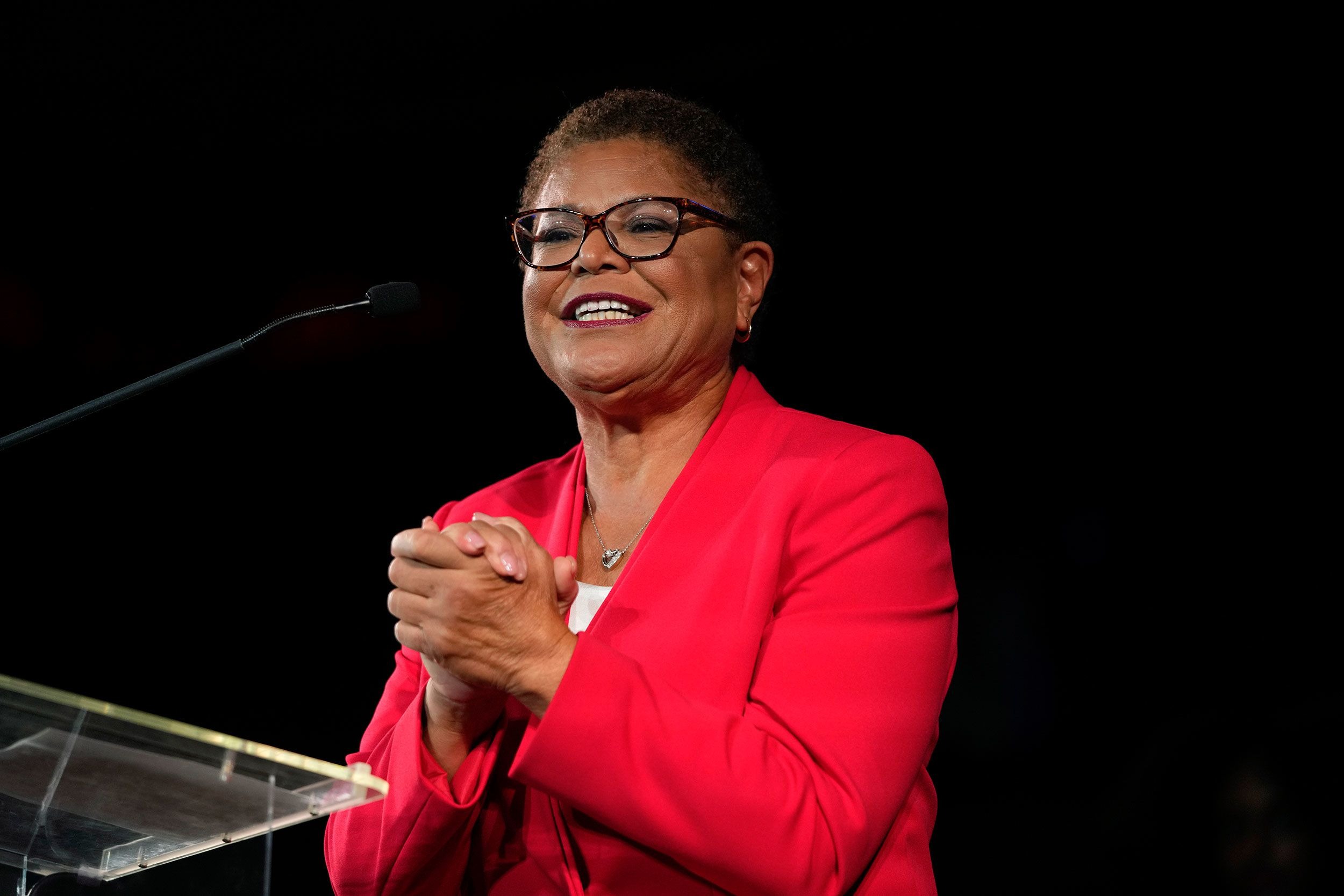In Los Angeles, Mayor Karen Bass and City Controller Kenneth Mejia find themselves increasingly at odds, signaling a budding conflict that could reshape city governance.
As Bass focuses on initiatives like clearing homeless encampments, increasing police department recruitment, and addressing budget shortfalls, Mejia emerges as a vocal critic, especially on LAPD spending and budget management.
His scrutiny extends to Bass’s efforts, including the Inside Safe program designed to move unhoused individuals indoors, raising questions about the scope of his audit authority.

Mayor Karen Bass (Credits: CNN)
Mejia’s stance is causing ripples across City Hall with his dire warnings about Los Angeles’ fiscal health. He highlights the budget deficit’s implications, from hiring freezes to potential service fee increases for residents, underscoring the city’s financial predicaments with urgent alarms on social media.
This tension surfaces as the mayor prepares her 2024-25 budget proposal, suggesting a challenging path ahead for city leadership. Mejia’s critique doesn’t stop at fiscal warnings; he also disputes city decisions like job position eliminations, fearing a detrimental impact on public services.
His office faces potential cuts, too, including 30 vacant positions recommended for elimination, a move Mejia contests with calls for public intervention. While the mayor’s office downplays Mejia’s alarms as exaggerated, the debate underscores differences in how the city approaches budget and service challenges.
The tension between Bass and Mejia reflects broader concerns about managing Los Angeles’ resources despite pressing social issues, particularly homelessness. Recent data corrections from Mejia’s office are fueling further debate over the reliability of his assertions.

Bass and Mejia (Credits: Reddit)
As the city braces for a new payroll system’s introduction, Mejia’s office tempers expectations, hinting at the potential for initial discrepancies in employee compensation. This cautious stance, coupled with the retraction of homelessness data, has amplified scrutiny of Mejia’s judgment among city hall observers.
Looking forward, Mejia’s upcoming town hall on the budget presents an opportunity for him to outline his vision for Los Angeles’ fiscal future. His calls for a more strategic, long-term budgeting approach reflect a desire for a fundamental shift in how the city plans its finances.
As tensions simmer between the mayor’s strategic initiatives and the controller’s fiscal watchdog role, Los Angeles stands at a crossroads, with the outcome likely to influence the city’s governance and policy direction for years to come.























